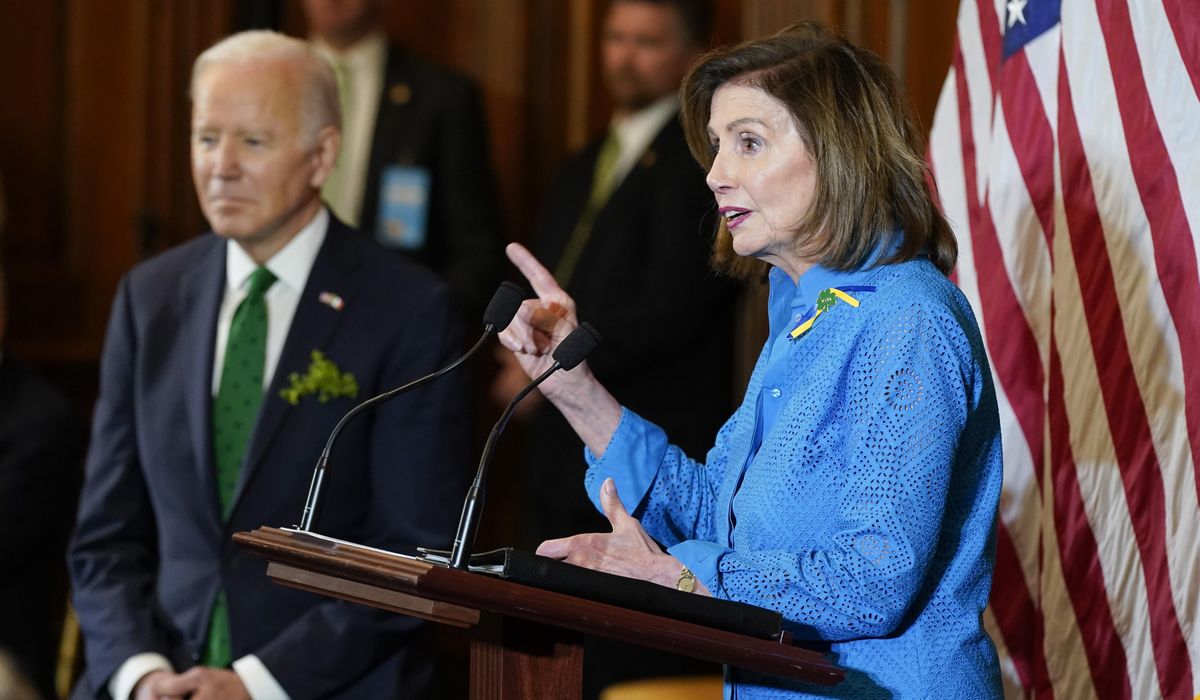

President Biden doesn’t think House Speaker Nancy Pelosi should visit Taiwan, a sharp break with his congressional ally that signals fears of provoking China.
China had pledged severe countermeasures if Mrs. Pelosi, California Democrat, visited the self-governing island that Beijing considers to be a breakaway province.
“The military thinks it’s not a good idea right now, but I don’t know what the status of it is,” Mr. Biden told reporters upon his return from a Massachusetts trip late Wednesday.
Mr. Biden also signaled he will be talking to Chinese President Xi Jinping soon.
“I think I’ll be talking to President Xi within the next 10 days,” he told reporters on the tarmac at Joint Base Andrews in Maryland.
U.S. leaders support Taiwan‘s right to democratic self-rule but typically take a careful diplomatic stance, known as “strategic ambiguity,” about its formal status.
The Chinese Foreign Ministry said Tuesday that it would take “resolute and strong measures” if Mrs. Pelosi heads to the island in August.
Mr. Biden’s insinuation that she should stay home drew a rebuke from Republicans who had offered unusual praise for the speaker for deciding to visit Taiwan.
“This pathetic self-deterrence is a mistake, and it will invite more aggression,” Sen. Tom Cotton, Arkansas Republican, said Thursday.
Mrs. Pelosi, who is second in line for the presidency, was scheduled to visit Taiwan in April but had to postpone the trip after she tested positive for COVID-19.
It is not clear what steps China might take, but it could send more military flights into the region or bully ships in the South China Sea.
China has vowed to annex Taiwan by force if necessary and has advertised that threat by flying warplanes near Taiwanese airspace and holding military exercises based on invasion scenarios. It says those actions are aimed at deterring advocates of the island’s formal independence and foreign allies — principally the U.S. — from coming to its aid more than 70 years after the sides split amid civil war and the communists’ takeover of China.
